This website uses cookies so that we can provide you with the best user experience possible. Cookie information is stored in your browser and performs functions such as recognising you when you return to our website and helping our team to understand which sections of the website you find most interesting and useful.
Monday 21 August 2017, 11:11 | By Chris Cooke
Eminem-esque legal battle results in new dispute between library music firms
Business News Labels & Publishers Legal

A spill over dispute linked to the legal battle between Eminem and New Zealand’s National Party has formally gone legal, as two production music companies argue over who should pay for legal costs associated with the whole kafuffle.
As previously reported, in 2014 New Zealand’s ruling political party used a piece of library music called ‘Eminem-esque’ in an election campaign ad. It sounded really rather like Eminem track ‘Lose Yourself’, so much so the rapper’s publishing company sued for copyright infringement.
When the dispute got to court earlier this year, the politicians insisted that they had properly licensed the Eminem-esque ‘Eminem-esque’ track off a production music company called Beatbox. Though legal reps for Slim Shady pointed to emails between people working for the National Party which discussed the similarities between their ad track and ‘Lose Yourself’, and that they risked being accused of ripping off the rapper’s music.
Those emails, the Eminem company argued in the New Zealand courts, showed that the politicians knew they’d be infringing the ‘Lose Yourself’ song copyright in their commercial, even if a production music firm had provided them with a convincing looking licence to use the track. We still await the judge’s conclusion on that case.
Meanwhile, the there mentioned Beatbox has launched its own litigation against another production music company which, it seems, provided it with ‘Eminem-esque’. Beatbox wants that other music library outfit to cover legal costs it has incurred in relation to the dispute between Eminem and the National Party.
Australia-based Beatbox seemingly represents various catalogues owned by US firm Spider Cues Music Library in its home market and, according to The Hollywood Reporter, that includes bloody ‘Eminem-esque’.
Beatbox says that when it entered into a sub-publishing deal with Spider Cues, its then new business partner insisted its catalogues were “exclusive and original works”. It also alleges that Spider Cues failed to alert its Aussie ally to the fact that it “knew or had reason to know that [some of its] tracks allegedly potentially infringed the rights of third parties”.
Spider Cues is yet to respond to those allegations, but Beatbox – for its part – says it is facing legal bills of $320,367, and that it wants its American buddies to cover those costs.
READ MORE ABOUT: Beatbox Music | Eminem | New Zealand National Party
Monday 21 August 2017, 11:09 | By Chris Cooke
Australian film industry launches new anti-piracy campaign as latest web-blocks go through
Business News Legal
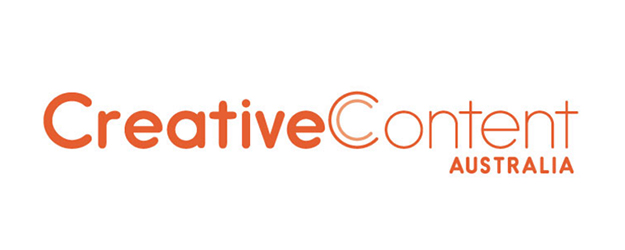
Web-blocking is now well underway in Australia after courts there issued two separate orders last week that together command that net firms block access to 59 piracy sites.
As previously reported, Australia was relatively late to the web-block party, where copyright owners get injunctions ordering internet service providers to block access to websites that can be proven in court to be liable for rampant copyright infringement – either directly or by facilitating the infringement of others.
Australian law-makers passed a new law in 2015 allowing web-blocking in the country, and the first blockade was then instigated late last year, with old favourite The Pirate Bay among the initial batch of blocked outfits.
A subsequent injunction then targeted various sites informally linked to the now defunct KickassTorrents, which had had the cheek to fall offline entirely in the time it took for that particular web-block application to go through the motions
The two new sets of blockades were requested by telly firm Foxtel and movie maker Village Roadshow, and cover websites like EZTV and Gomovies. The latest web-blocks were welcomed by film industry group Creative Content Australia, which also announced a big new consumer-facing anti-piracy campaign to coincide with the judgements.
The organisation’s chair Graham Burke told reporters: “Site-blocking has been very effectively implemented around the world and proven to reduce the theft of screen content as well as increase the use of legal sites. The thieves who run pirate sites contribute nothing to Australia – they employ no-one and pay no taxes here. Of the enormous profits they earn, not one cent goes back to the original creators of the content”.
Meanwhile the group’s Executive Director, Lori Flekser, commented on the new anti-piracy campaign, adding that: “We are proud to bring this new campaign to Australians. Consumers, often unwittingly, bear significant costs of illegal streaming – not only will they suffer from diminishing investment in the content they love to consume, but pirate sites are amongst the most hazardous places on the internet”.
READ MORE ABOUT: Creative Content Australia | Foxtel | Village Roadshow | web-blocking
Monday 21 August 2017, 11:03 | By Chris Cooke
CD Baby encourages its community to keep an eye out for hate bands
Business News Labels & Publishers
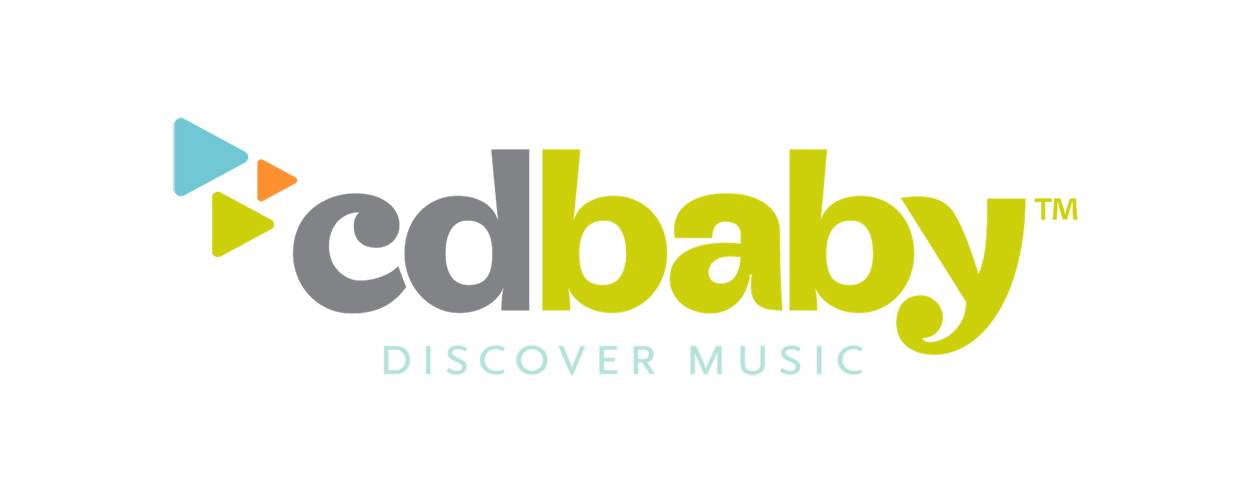
Music distributor CD Baby has encouraged members of its community to get in touch if they reckon there is music on its platform that constitutes hate speech.
The distribution firm’s statement followed the previously reported news that Spotify had removed music from its servers by acts that have been categorised as racist “hate bands” by US civil rights advocacy group the Southern Poverty Law Center. Spotify acted after Digital Music News reported on the hate bands whose music was available via the streaming service in the wake of recent news events Stateside.
Spotify said that it “takes immediate action to remove any such material as soon as it has been brought to our attention”, though added that it relied to an extent of its label and distributor partners to filter out tracks of this kind.
Which means companies like CD Baby. Though – as a DIY distributor open to any self-releasing artist – there is only so much CD Baby itself can do to filter tracks that flow through its channels, hence the message urging community members to get in touch if they see music on its platform that causes concern.
The firm’s CEO Tracy Maddux told reporters: “We believe hate speech is particularly odious, and we try not to carry it, per our hate speech policy. However, we carry over eight million songs that hundreds of thousands of artists self-distribute on the CD Baby platform, and it is impossible to screen every song for objectionable content”.
Maddux added: “Our practice has been to encourage our community to let us know if there is content available on our site that violates our guidelines. Reports of hate-promoting music are taken very seriously and we are making every effort to flag and vet tracks of concern. In the event we find content in violation of guidelines, we will take it down”.
CD Baby also confirmed it is distributing the previously reported album ‘Philia: Artists Rise Against Islamophobia’, which features tracks from the likes of Mac DeMarco, Heems, Fruit Bats and former Walkmen vocalist Hamilton Leithauser, and which was released on Friday.
READ MORE ABOUT: CD Baby
Monday 21 August 2017, 11:01 | By Chris Cooke
More MEGS money dished out to UK acts going global
Business News Labels & Publishers Management & Funding
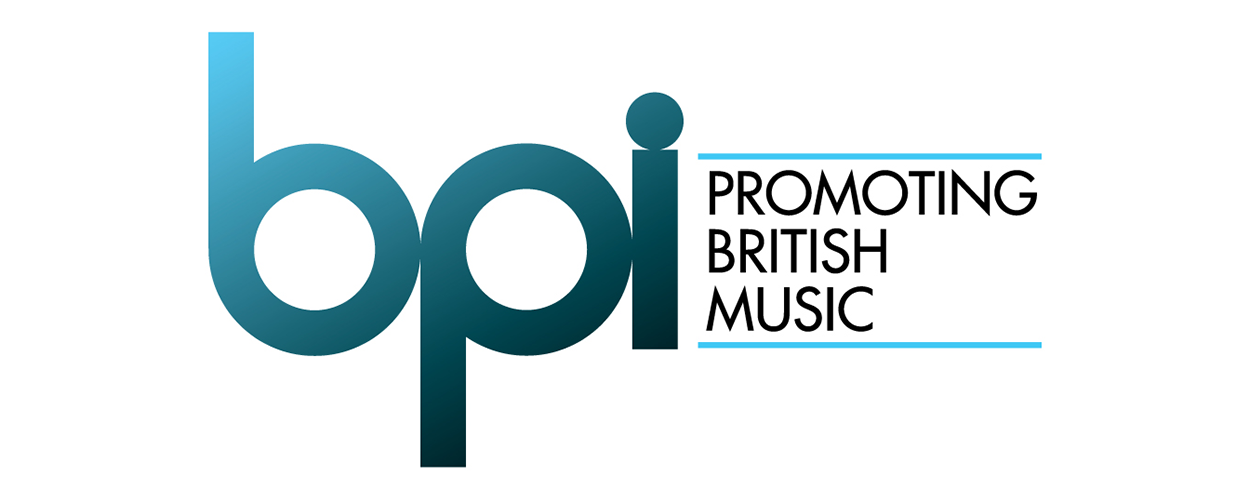
Record industry trade group the BPI and the UK government’s Department For International Trade this weekend revealed the artists getting the next batch of funding from the Music Export Growth Scheme, or MEGS to its closest family members.
If you don’t know what MEGS is, you really ought to read this report from the CMU Insights Export Conference at The Great Escape back in May, which tells you everything you need to know.
A further £213,000 has been dished out in this latest round of the funding scheme that seeks to support UK artists looking to grow their fanbase and boost their revenue streams in new markets overseas.
Damn, I just told you what MEGS is in a sentence. You should still go read that CMU@TGE report. I mean, I dug out the link and everything. Look, here’s another brilliant MEGS-related CMU@TGE article.
“MEGS is making a real difference by offering practical support to smaller music companies and their diverse range of artists who have the talent but not always the means to develop their potential in key overseas markets”, says the BPI’s Chris Tams.
Doing the maths on how much support MEGS has now provided since its launch, he went on: “It’s great news that over 150 mainly indie-signed UK acts have benefitted from more than £2 million in funding to date, boosting British music exports in the process”.
And here it is everybody, the list of the latest MEGS recipients, organised especially for all you fans of alphabetical ordering: Ags Connolly, Amber Run, Blaenavon, Boston Manor, Bruno Major, Dan Croll, Django Django, Dream Wife, Ibibio Sound Machine, Johnny Flynn & The Sussex Wit, Mount Kimbie, Roddy Woomble, The XCERTS, This is the Kit, Will Joseph Cook.
READ MORE ABOUT: British Phonographic Industry (BPI) | Department For International Trade | Music Export Growth Scheme (MEGS)
Monday 21 August 2017, 10:59 | By Chris Cooke
BBC announces Harry Styles telly special
Artist News Business News Media

The BBC has announced a telly special with that Harry Styles called ‘A Telly Special With That Harry Styles’. No, not really. It’s called ‘Harry Styles At The BBC’. To be consistent with previous pop star telly specials ‘Adele At The BBC’ and ‘Michael Bublé At The BBC’.
The one-time One Directioner will sing songs from his debut solo album, and chit chat about life in 1D, life not in 1D, and his side career playing bit parts in harrowing war movies. On the other side of the chit chat will be his best bud Nick Grimshaw, so don’t expect any questions of substance, but then that’s not really the point of these feel good shows is it?
The special is going to be recorded Up North in Manchester because, you might remember, Harry Styles grew up Up North in the Cheshire town of Holmes Chapel. Which you might not consider to be properly Up North, but you can fuck off. You get Granada telly there and that’s all that matters. Except when you’re making your telly special for the BBC, I suppose. But still, Granada telly equals Up North.
Anyway, what was I talking about? Oh yes, the telly special with that Harry Styles that will be recorded on 30 Aug and aired in November. Want a vacuous quote from Grimshaw? Here it is! “Harry is a great performer and full of so many wonderful stories about his extraordinary career, which he’ll be sharing with us, I can’t wait for this show!”
READ MORE ABOUT: BBC | Harry Styles
Monday 21 August 2017, 10:57 | By Chris Cooke
Architects frontman pauses gig to hit out at groper
Artist News Gigs & Festivals

The frontman of British metalcore band Architects has been commended for interrupting his set at the Lowlands festival in Amsterdam on Friday to hit out at an audience member he saw grope a fan who was crowd surfing during the show.
According to NME, Sam Carter told his audience “I’ve been going over in my fucking mind whether I should say something about what I saw in that last song. And, do you know what, I am going to fucking say it”.
He went on: “I saw a girl, a woman, crowdsurfing over here and I’m not going to point the fucking piece of shit out that did it, but I saw you fucking grab at her boob. I saw it. It is fucking disgusting and there is no fucking place for that shit”.
Carter then added: “It is not your fucking body and you do not fucking grab at someone. Not at my fucking show. So if you feel like doing that again, walk out there and fuck off and don’t come back”.
Before resuming his set, he concluded: “Let’s keep this going, let’s keep this a safe place for fucking everybody, and let’s have a fucking good time”.
Carter’s comments come as increased attention is given to the sexual harassment and assault that is routinely suffered by female music fans at gigs and festivals.
Initiatives like Girls Against and the Association Of Independent Festival’s Safer Spaces campaign have put the spotlight on the problem, the latter promoting the simple three part message: “zero tolerance to sexual assault”, “hands off unless consent” and “don’t be a bystander”.
READ MORE ABOUT: Architects
Monday 21 August 2017, 10:50 | By Chris Cooke
Gene Simmons doesn’t regret trying to trademark ‘devil horns’ gesture
And Finally Artist News

Remember how Gene Simmons was trying to trademark the ‘devil horns’ hand gesture, that is somewhat synonymous with rock and metal, on the basis he used it first?
Well, shortly after all that was reported – and after most of the rock and metal community had told him to fuck the fuck off, most inwardly, some outwardly – he withdrew his trademark application.
At the time American trademark law expert Ronald Adams wrote in Forbes: “Although images or stylised drawings of hand gestures can function and be registered as trademarks either by themselves or as part of a design mark, hand gestures in and of themselves cannot function as trademarks. And, even if they could, there would be no practical way to enforce the trademark against others (often referred to as ‘policing the mark’)”.
But Simmons would like you to know that [a] he could have trademarked the devil horns gesture if he’d wanted to, [b] he doesn’t regret filing his original application to do so, and [c] he owns all sorts of trademarks you’d be surprised about.
Speaking to Canadian newspaper the Windsor Star, Simmons said in a recent interview about the recent trademark application and the resulting outrage: “I regret nothing. Wake up every morning and let your conscience be your guide”.
“Did you know I own the money bag logo?” he went on. “The dollar sign with the bag of money. I own all kinds of things. I own ‘motion pictures’ as a trademark. Anyone who thinks that’s silly… the silliest thing I’ve ever done is wear more makeup and higher heels than your mommy. People said, ‘You can’t do that’. Actually, bitch – I can. I can do anything I want to do”.
So that’s you told. Bitch.
READ MORE ABOUT: Gene Simmons
Friday 18 August 2017, 13:51 | By Chris Cooke
YouTube’s Lyor Cohen tells the music industry to shut up and wait (basically)
Business News Digital Legal Top Stories

It’s nearly a year since YouTube announced it was hiring American record industry veteran Lyor Cohen as its Peacemaker In Chief, the music industry’s safe harbour campaign having ramped up somewhat Stateside earlier in 2016.
Yesterday, eight months after actually taking up that tricky post, Cohen took to the official YouTube blog to ponder a little about the music industry’s relationship with the Google video site. He basically told his former colleagues within in the music business to shut the fuck up and just wait for the good times to roll on in.
As much previously reported, YouTube, as the market-leading opt-out streaming service, has become enemy number one for the music community in recent years. Partly because of the impact the industry fears the Google-owned service is having on the market-leading opt-in streaming services like Spotify and Apple Music.
YouTube is an opt-out streaming service because anyone can upload content to its server, and copyright owners who do not want their music on the platform must then request its removal via YouTube’s Content ID system. Whereas a label’s music only appears on a Spotify or Apple Music-type service if they choose to opt-in.
The music industry argues that because of the way YouTube sources its content, that greatly increases the Google company’s negotiating hand in licensing deals, meaning YouTube enjoys much more preferential rates that the opt-in streaming services it competes with.
That is only possible because of the aforementioned copyright safe harbour, which says that YouTube can only be held liable for the unlicensed content users upload to its servers once it is made aware of its existence. To that end, the music industry has been busy trying to have the safe harbour rule revised, so that YouTube no longer gets protection, and its negotiating hand will become more akin to that of Spotify and Apple Music.
Cohen deals with the safe harbour issue directly in his new blog post, but not until the end. First he offers some other theories as to why YouTube’s relationship with the music industry is so fraught, and then tries to convince the YouTube-haters amongst his former colleagues at the record labels that things are actually much rosier for the music industry within YouTubes-ville than they probably think.
He starts off by talking up YouTube’s moves in the subscription space, correctly identifying that the music industry is currently much more enamoured with paid-for streaming than freebie streaming.
He concedes that YouTube came to market with its Red subscription service relatively late in the day, and is still very much rolling it out around the world. But great progress is being made, he reckons, and from a music perspective momentum in that domain will only increase as YouTube Music and Google Play Music are more closely aligned.
“Subscription revenue is still in its infancy”, Cohen writes of the wider subscriptions market, “yet it’s already reaping billions for the music industry. It’s not just some business model on a whiteboard; it’s a real and rapidly growing source of cash for labels and artists today”.
But while the music industry can look forward to lots of lovely YouTube subscription money in the future, Cohen continues, they shouldn’t forget that the company’s core revenue stream – ad sales – still has lots of potential.
“Some think ads are the death of the music industry”, Cohen muses. “Ads are not death. Death is death. Irrelevance is death. Fans not being exposed to new music is death”.
Hmm, maybe. “My time at YouTube has me convinced that advertising is another powerful source of growth for the industry”, he goes on. “YouTube’s ads hustle has already brought over a billion dollars in twelve months to the industry and it’s growing rapidly. Combined with YouTube’s growing subscription service, they’ve now got two engines taking the industry to a more lucrative place than it’s ever been before”.
And then, of course, there’s the promo value of YouTube. Never forget the promo value of YouTube. I can’t believe you forgot the promo value of YouTube!
Even the YouTube-haters in the music industry concede that the Google site is a crucial marketing channel, especially for new talent. So much so, even if the labels got their way on safe harbour, the Google company could still drive a hard bargain when negotiating licensing deals, based on the assumption labels ultimately can’t afford to boycott YouTube for marketing reasons. Though the labels might argue (or at least hope) that Facebook’s video push strengthens their hands in that domain.
But, Cohen says, he is going to make YouTube an even better marketing platform for all those budding new artists out there. “YouTube is already a great force for breaking new artists”, he writes, “in fact, the majority of music watch time on YouTube is coming from its recommendations, rather than people searching for what they want to listen to. But YouTube needs to find new ways to promote and break artists and their albums so they have a chance to shine on the platform and connect with their fans. This is one of my biggest priorities and you’ll see more coming soon”.
So to conclude, if only the music industry would be a little more patient, great things are incoming. More subscription money! More advertising money! More free marketing tools! But not if the fucking labels fucking fuck it all up with all their fucking safe harbour nonsense. I’m paraphrasing a bit there. But it’s what he meant.
“Without safe harbour, we’d all be lost at sea”, Cohen writes. “I’ve spent my professional life fighting for artists to get what they deserve. I’ve worked with the RIAA and the IFPI to fight piracy since back when the main concern was bootlegged tapes. [But] safe harbour has become an obsession – with many complaining it’s the cause of all of industry’s woes”.
Insisting he isn’t just parroting his employer’s official line (before doing just that), Cohen insists that “safe harbours is a distraction”. He argues: “Safe harbour helps open platforms like YouTube, Facebook, Soundcloud and Instagram give a voice to millions of artists around the world, making the industry more competitive and vibrant”.
It seems unlikely his blog post will placate any YouTube critics in the music community. But in some ways Cohen is right that safe harbour has become something of a distraction since it arrived at the top of the music industry’s lobbying agenda. After all, even if the labels and publishers got the legislative reform they seek, it could take years to confirm what new obligations any rewrite of the law actually placed on YouTube et al, and who knows where the digital music business will be by then.
And in some ways, at least some of the YouTube hate comes from the music industry’s dislike for free streaming, which will always be less lucrative. Though freebie streams are surely going to be part of the digital music business long-term and Google has arguably made more strides in this domain than anyone else.
Which isn’t to say that YouTube isn’t basically exploiting a loophole in copyright law, nor that copyright owners shouldn’t be seeking to close that loophole. Though you sense that some now see safe harbour reform as a kind of panacea that will make the digital music business work for everyone. And it won’t. Even if the music industry wins.
And, of course, from an artist and songwriter perspective there remains the big fat transparency problem – the fact many artist and songwriters don’t really know how their recordings and songs are generating money online because of poor reporting and deal secrecy at the labels, publishers and collecting societies.
Some moves are being made to bring more transparency to the streaming music business, but on some key issues the major music companies and big collecting societies continue to drag their feet. Doing so is anti-artist and anti-songwriter, and ultimately counter-productive for the entire business. And it also provides ammunition to the safe harbour dwelling tech giants, as Cohen neatly demonstrates.
“Critics complain YouTube isn’t paying enough money for ad-supported streams compared to Spotify or Pandora”, he muses in his blog. “I was one of them! Then I got here and looked at the numbers myself. At over $3 per thousand streams in the US, YouTube is paying out more than other ad supported services. Why doesn’t anyone know that?”
“Artists and songwriters need to truly understand what they’re making on different platforms”, he adds. And that means more transparency is required, but from the labels and publishers as well as the platforms. “We – the labels, publishers and YouTube – must shine a light on artist royalties”, he demands, “[and] show them how much they make from ads compared to subscriptions by geography and see how high their revenue is in the US and compared to other services”.
READ MORE ABOUT: Apple Music | Lyor Cohen | Spotify | YouTube
Friday 18 August 2017, 13:43 | By Chris Cooke
BMI formally responds to Department Of Justice’s 100% licensing appeal
Business News Legal

US collecting society BMI yesterday filed its formal response to the Department Of Justice’s appeal over the whole 100% licensing rigmarole.
Recap! The US Department Of Justice last year declared that – by its reading of the so called consent decrees that regulate American performing rights organisations BMI and ASCAP – the two PROs are obliged to offer licensees so called 100% licences. Which would mean a licensee with a BMI licence could make use of a song even if BMI only controlled 15% of said song. Under the current ‘fractional licensing’ system the licensee would also need licences from whichever societies or publishers control the other 85%.
BMI, ASCAP and the US songwriting community hit out at that DoJ declaration, which would require a major change in how collective licensing works and performing right royalties flow Stateside. BMI took the matter to the court that oversees its consent decree where judge Louis L Stanton immediately sided with the society. The DoJ is now appealing that ruling.
BMI’s response to the DoJ’s appeal restates its arguments as to why 100% licensing is not required under its consent decree, as well as running back through why introducing a 100% licensing system now would be major pain in the arse.
BMI boss Mike O’Neill summarised the society’s position as the court papers were filed yesterday. He stated: “BMI’s appeal argument is extremely simple in that it comes down to the language of our decree. As Judge Stanton clearly stated, there is nothing in the BMI decree that prevents us from engaging in the industry-wide practice of fractional licensing”.
“What is not simple, however”, he went on, “is the impact the DOJ’s interpretation of our decree would have on the marketplace. It would stifle competition, hinder collaboration and unfairly benefit music users at the expense of the American songwriter”.
While the court proceedings in relation to the 100% licensing debate continue to go through the motions, it’s also hoped that lawmakers in US Congress could ultimately amend copyright law to give the all-clear to fractional licensing in the collective licensing domain.
Plus, of course, there has been a post-Presidential election change of leadership at the DoJ since last year’s proclamation on 100% licensing, so there is always a chance the government agency could be persuaded to change its mind.
O’Neill added: “As always, we hope for the opportunity to sit down with the new leadership of the DOJ to educate it about the negative ripple effect its 100% licensing interpretation would have on the entire music industry”.
READ MORE ABOUT: ASCAP | BMI
Friday 18 August 2017, 13:40 | By Chris Cooke
Songs signs Hudson Mohawke
Business News Deals Labels & Publishers

US music publisher Songs yesterday announced it had signed a worldwide co-publishing deal with that Hudson Mohawke guy, aka Ross Birchard.
As well as his own output as an artist, the Scottish producer has also worked with a stack of other acts including Kanye West, Drake, A$AP Rocky, Pusha T and John Legend.
Confirming the new deal, the VP of A&R at Songs, Greg Johnson, said: “Hudson is one of the most important hit-making forces on the rise in contemporary music and we are THRILLED to be working with him at Songs”.
Noting Birchard is now based in America, Johnson added: “He’s also now based here in the US which will put him in the mix for an even wider array of collaborations about which the creative community is already excited”.
READ MORE ABOUT: Hudson Mohawke | Songs Music Publishing
Friday 18 August 2017, 13:36 | By Chris Cooke
Universal Music Publishing signs Tom Misch
Business News Deals Labels & Publishers

Universal Music Publishing in the UK has signed a worldwide deal with artist / songwriter / producer chap Tom Misch. Why? Because Misch “takes the musical ingredients of J Dilla-style beats, irresistible guitar lines and neo-soul to create his own adventure in sound that’s intrepid, invigorating and bursting with inventiveness” of course! I can’t believe you even had to ask. It was so obvious.
Says the MD of Universal Music Publishing UK, Mike McCormack: “We’re hugely excited to be working with Tom – he is an exceptionally talented songwriter and producer. Everything he puts out is refreshing, original and beautifully produced”.
Promising “much magic to come”, not least from Misch’s debut album, McCormack added: “I’d also like to thank Mark Gale and Pete Simmons here at UMPG who have been fans and supporters of Tom from day one and worked tirelessly to convince him and his management that Universal was the right home for his music”.
READ MORE ABOUT: Tom Misch | Universal Music | Universal Music Publishing
Friday 18 August 2017, 13:29 | By Chris Cooke
Vigsy’s Club Tip: Elrow Town
CMU Approved

The team from Elrow are staging their biggest UK show to date this weekend with Elrow Town, taking place at the good old Olympic Park in Stratford no less.
These party makers have been causing quite a stir in Ibiza this season with their residency at Amnesia, and Elrow Town should be a stand-out event too, with a real carnival atmosphere topped off with stilt walkers, interactive games, confetti cannons and a fancy dress parade.
Music wise, the main stage features Jamie Jones and Eats Everything on Saturday, while Jamie returns on Sunday with Seth Troxler. Meanwhile the El Rowcio stage has The 2 Bears both days, and the Mr Whompy stage boasts Roska on Saturday and Shadow Child on Sunday.
Saturday is already sold out, but tickets are still available for Sunday as I write this. Definitely worth checking out!
Saturday 19 Sunday 20 Aug, 12.00pm-10.00pm (last entry 6pm), Queen Elizabeth Olympic Park, London Way, Stratford, E15 2EE, Sunday tickets £49.50, more here.
READ MORE ABOUT: Elrow Town | Olympic Park
Friday 18 August 2017, 13:29 | By Chris Cooke
ABBA’s Benny Andersson plays his memoirs on the piano
Artist News Releases

Benny Andersson off of ABBA is releasing a new album of solo piano music via Universal’s classical label Deutsche Grammophon. It features new interpretations of songs from both ABBA and his stage musicals, plus other solo compositions. After much thought and plenty of consideration – I’m sure – he’s called the album ‘Piano’.
“In the process of recording this album, I have come to realise that the pieces I have chosen to play are an integral part of me”, says Andersson of the record, which is out on 28 Sep. “In endeavouring to reach for some core within them, I have found that the more I strip away the clothing, the closer I feel to the music, regardless of whether it was created last year or 40 years ago. In a strange way, I feel like I am playing my memoirs”.
The new version of ABBA track ‘Thank You For The Music’ that appears on the record lands on the streaming platforms today.
READ MORE ABOUT: Benny Andersson | Deutsche Grammophon | Universal Music
Friday 18 August 2017, 13:25 | By Chris Cooke
AIM to give Innovator Award to Boy Better Know
Artist News Awards Business News

The Association Of Independent Music has announced that the boys from Boy Better Know will be handed the Innovator Award at this year’s Independent Music Awards. The grime collective and label founded by JME and Skepta has, of course, been integral in the rise of the genre and its crossover into the mainstream.
Announcing the decision to present BBK with an award, Vice’s music chief Alex Hoffman, also a judge for the AIM Awards, said: “Like so many young people trying to somehow make a viable career out of music, when the members of BBK came together, the completely independent route was the only one on the table”.
He went on: “Then the offers came flooding in but none of them saw a reason to change the set-up. They simply saw what they’d achieved on their own terms up to that point and had the confidence to keep building their empire independently. Their influence on the next generation of UK artists goes so much further than their musical output and goes so much further than grime”.
Speaking for AIM, the trade group’s Lara Baker added: “Boy Better Know have been tearing up the rulebook for over ten years, influencing culture and building success entirely on their own terms. From the early days of radio stations refusing to play their music and venues shutting down their shows, 2017 has seen them dominate the airwaves and take grime global. Whether headlining Glastonbury’s Other Stage, taking over The O2 arena or dropping tracks with Drake, they maintain a fiercely DIY and independent spirit, inspiring countless young artists to do the same”.
READ MORE ABOUT: AIM Independent Music Awards | Boy Better Know | JME | Skepta
Friday 18 August 2017, 13:23 | By Chris Cooke
CMU’s One Liners: Steve Angello, MTV Unplugged, Justin Bieber, more
Artist News Business News Deals Gigs & Festivals Media Releases

Other notable announcements and developments today…
• Kobalt has announced a label services deal with DJ/producer Steve Angello and his label Size Records UK. Kobalt boss Willard Ahdritz says his global team is “very excited” about the new partnership.
• MTV is apparently relaunching its ‘Unplugged’ franchise, with Shawn Mendes the first act to unplug for the new series.
• Radiohead drummer Philip Selway will release new solo album ‘Let Me Go’ via Bella Union on 27 Oct. It soundtracks a film of the same name, which is out next month. Here is the title track.
• Justin Bieber and BloodPop have released a new track called ‘Friends’.
• Producer Gordon Raphael, who has worked with the likes of The Strokes and Regina Spektor, is releasing a debut album as an artist on 27 Oct. Here is a track from it. The album’s called ‘Sleep On The Radio, this track is ‘Savage’.
• Robert Plant is going on tour in November and December and people who pre-order his new album ‘Carry Fire’ via Amazon get priority access to tickets. Imagine that!
READ MORE ABOUT: Amazon | BloodPop | Gordon Raphael | Justin Bieber | Kobalt | MTV | Philip Selway | Robert Plant | Shawn Mendes | Steve Angello
Friday 18 August 2017, 13:21 | By Chris Cooke
Beef Of The Week #368: Wu-Tang Clan fan (aka Potential Juror Number 59) v Martin Shkreli
And Finally Artist News Beef Of The Week

In a week when some of the very worst Americans have been in the media spotlight, it was reassuring to read the court transcripts from the recent fraud case against Martin Shkreli.
And in particular transcripts of the jury selection process at the start of the proceedings, during which more than 200 potential jurors had to be excused from the trial, on the basis that they didn’t feel they could be impartial in the case, on account of the one time pharmaceuticals entrepreneur [a] being a cunt, [b] looking like a cunt, and [c] having once disrespected the Wu-Tang Clan.
This beef actually occurred back in June, but the transcripts were published by Harper magazine this week, and they make for very amusing reading indeed. Shkreli, you may remember, was the slime-ball who became front page news when he raised the price of the drug Daraprim by 5000% in his role as CEO of Turing Pharmaceuticals.
He then stayed in the news by being a general shit-bag and saying shit-baggy things, and subsequently became music news when it emerged he had provided funding to punk and hardcore label Collect Records. It then turned out that he was also the buyer of ‘Once Upon A Time In Shaolin’, the new record made by the Wu-Tang Clan of which only one single copy was being sold.
Shkreli’s association with the Wu-Tang Clan ultimately won him his first appearance in the Beef Of The Week column, when he started beefing with Wu-Tang member Ghostface Killah. That occurred after the latter was asked by TMZ what he thought about the buyer of Wu-Tang’s new album.
“That shithead” he responded. “You don’t take some AIDS pill you have for like $7 and then make it like $800. You know? You don’t do it like that. I don’t care if you bought the Wu-Tang whatever, whatever, whatever. I don’t even know him, but when I heard what he did with the AIDS like that, that’s not right”.
It’s probably fair to say that, when Shkreli – having been arrested on allegations of fraud in late 2015 – rocked up in court earlier this summer to face eight fraud charges, many of those lined up to sit on the jury were very much in agreement with Ghostface Killah.
Hence why so many potential jurors had to be excused. “I’m aware of the defendant and I hate him”, said potential juror number one when asked whether they could be ‘fair and impartial’ as a member of the jury considering the fraud allegations. “I think he’s a greedy little man”, the potential juror added.
“Both of my parents are on prescriptions that have gone up over the past few months, so much that they can’t afford their drugs”, stated potential juror number eighteen. “I have several friends who have HIV or AIDS who, again, can’t afford the prescription drugs that they were able to afford”. But that’s not relevant to the fraud case, potential juror number eighteen was told, so could you not put those feelings to the side? “No, no, no, no”.
“He’s the most hated man in America”, reckoned potential juror number 47. “I just walked in and looked right at him and that’s a snake”, stated potential juror number 52. “I have total disdain for the man”, admitted potential juror number 70. “I believe the defendant is the face of corporate greed in America”, confirmed potential juror number 77. “He kind of looks like a dick”, observed potential juror number 144.
But what about potential juror number 59? Could potential juror number 59 be ‘fair and impartial’ if asked to sit on the jury deciding the fate of fuck face Shkreli?
“Your Honour, he is totally guilty and in no way can I let him slide out of anything”, the potential juror said. So, not very impartial then. But on what basis do you form this strong opinion? Well, there’s “his entire demeanour” for starters. And then there’s “what he has done to people”. And, of course, as potential juror number 59 was very keen to stress, this is a man who “disrespected the Wu-Tang Clan”.
Earlier this month, Shkreli was found guilty of two counts of securities fraud and one count of conspiracy to commit securities fraud. He is still be sentenced.
READ MORE ABOUT: Ghostface Killah | Martin Shkreli | Wu-Tang Clan
Friday 18 August 2017, 08:58 | By Chris Cooke
CMU Digest 18.08.17: SoundCloud, Pandora, RIAA, Spinrilla, Cinram, Manchester Arena
CMU Digest

The key stories from the last seven days in the music business…
SoundCloud confirmed it had raised $169.5 million in new finance and that a new CEO had been installed at the company. As expected, boutique bank The Raine Group and Singapore’s state investment fund Temasek are behind the new financing of the flagging streaming firm, which risked running out of cash later this year. Former Vimeo boss Kerry Trainor becomes CEO and is charged with the task of turning round the firm’s fortunes, which now rest on its ambitions in the subscription streaming space, where it faces tough competition from the likes of Spotify and Apple. [READ MORE]
Pandora announced that Roger Lynch, most recently at Sling TV, had been appointed its new CEO. He takes over from founder Tim Westergren, who departed as part of a big restructure back in June. The flagging US streaming firm has $480 million of Sirius XM investment to spend and the $200 million it got from selling Ticketfly. Lynch’s job is to use that money to grow Pandora’s core ad-sales business, while also signing up users to its paid-for plans Plus and Premium. [READ MORE]
Songwriter groups from around the world hit out at the Recording Industry Association Of America over its response to the US Copyright Office’s review of moral rights. The moral rights of creators have never been properly implemented in US copyright law, despite such rights being contained in the Berne Convention, of which America is a signatory. Creator groups hope that the Copyright Office review might lead to moves to fix that. But the RIAA has expressed concern that enshrining a songwriter’s moral right to attribution into the law might place new legal obligations on labels regarding the data they attach to their recordings. The songwriter groups say that the RIAA has exaggerated the possible ramifications, and shouldn’t be lobbying against its allies elsewhere in the music community. [READ MORE]
Spinrilla hit out the RIAA’s suggestion it hand over its source code. The mix-tape sharing app is being sued for copyright infringement by the major labels. In a recent submission to the court – which was published by Torrentfreak this week – Spinrilla revealed that the RIAA had asked for access to its source code in order to help build evidence for the case. The app maker said doing so would allow the labels to entirely replicate its platform, adding that “there is simply no justification for Spinrilla sharing its source code with plaintiffs”. [READ MORE]
Administrators for UK distribution firm Cinram confirmed they were looking for a buyer for the company, which fell into administration earlier this month, seemingly after losing a single key account – Universal Pictures – earlier in the summer. Cinram provides physical distribution services to the music, film and gaming sectors. The company is continuing to operate for now as the administrators look for possible buyers who might acquire the business as a going concern. [READ MORE]
It was announced that the Manchester Arena would reopen on 9 Sep, having been closed since the bomb attack there in May. The venue will reopen with a special benefit show headlined by Noel Gallagher in aid of a new fund to build a memorial to those who died during the terrorist attack. The trustees of the existing charitable fund to support those directly impacted by the bomb also confirmed that the families of those killed will be eligible to claim up to £250,000 each. [READ MORE]
The big deals from the last seven days in the music business…
• Because Group bought the old London Records catalogue [INFO]
• Fire Records acquired the Lemonheads recordings released by Atlantic Records [INFO]
• BMG allied with Black Box Music as part of its Canadian expansion [INFO]
• Ignition Records allied with FUGA [INFO]
• Sony/ATV renewed its deal with hit writer Ilsey Juber [INFO]
• Warner/Chappell announced a deal with Siobhan Fahey [INFO]
READ MORE ABOUT: British Academy of Songwriters Composers & Authors (BASCA) | Cinram | Manchester Arena | Pandora | Recording Industry Association Of America | SoundCloud | Spinrilla
Friday 18 August 2017, 08:08 | By Chris Cooke
Trends: The rights of artists and songwriters post-assignment – performer and moral rights
CMU Trends

At its core, copyright is about providing those who create original creative works with control over what happens to that which they create. This control is granted either as a point of principle – “of course a creator should control their creations” – or as some kind of reward for creative endeavour – “well done for all your hard work, now you can exploit your controls to make a profit”.
But the individuals who actually create a piece of content aren’t necessarily the owner of the subsequent copyright. Depending on what kind of copyright results from the creative process, the resulting copyright may go to the principal funder of the work rather than the individuals who were hands-on creative. And even where the individual creator is the copyright owner by default, said creator may then transfer ownership to another party, in return for money or administrative support.
However, even where the individuals involved in the creation of a piece of content are not the owners of the resulting copyright, they may well still have some rights over said content, either through contract, or as a result of performer or moral rights.
With these kinds of rights back in the news this week, as a result of a disagreement between the songwriter community and the label community in the US, where moral rights are under review by the Copyright Office, CMU Trends considers what the law says about the rights of artists and songwriters who don’t own the copyright in their work.
COPYRIGHT BASICS
Let’s start with the basics from a music rights perspective. If you write a song, you create a copyright. If you record a track, you create a copyright. As far as copyright law is concerned these are separate. So if you have a recording of a song, there are two copyrights at play, one in the song and one in the recording.
Actually, technically, the song also consists of two copyrights if it has lyrics. Which is to say there is one copyright in the words (the literary work) and another in the melody (the musical work). But in the music industry that distinction isn’t generally made – we simply talk about the song copyright. However, the distinction is very much made between the song rights and the recording rights.
Copyright Ownership
In most countries copyright is automatic, there is no registration process, so that a song or a recording are protected by copyright as soon as they are created. To that end the law has to tell us who the default or presumed owner of the copyright is, because no one is formally claiming ownership.
Default ownership rules vary, both from country to country, and according to the kind of copyright. In the UK, the default owner of the song copyright is the songwriter (or songwriters – in which case the copyright is co-owned). But the default owner for the recording copyright is whoever organises and pays for the recording to take place, which for a signed artist would be the record company.
Copyright Controls
As stated above, copyright is all about control. As the copyright owner you have certain controls over what happens to your work. The precise list of controls again varies from country to country, though will commonly include…
• The exclusive right to make copies of your work (the true ‘copy’ right).
• The exclusive right to then distribute those copies.
• The exclusive right to rent out those copies.
• The exclusive right to adapt the work.
• The exclusive right to perform the work in public.
• The exclusive right to communicate or make available the work to the public.
This list could be abbreviated as follows…
• The reproduction control
• The distribution control
• The rental control
• The adaptation control
• The performance control
• The communication control
In the music industry it is common to group the reproduction and distribution controls together and call them the ‘reproduction rights’ or, in music publishing, the ‘mechanical rights’. It is also common to group the performance and communication controls together and call them the ‘performing rights’ or ‘neighbouring rights’.
Copyright makes money when a third party wishes to exploit one of the controls. So, someone wants to make and distribute a copy of your song or recording, or adapt it, or perform it in public, or communicate it. Copyright law says the third party must get the permission from the copyright owner. The copyright owner sells this permission, and thus makes money from their copyright.
Copyright Assignment
Although copyright law tells us who the default owners are, in most countries copyright ownership can also be transferred by contract. So the default owner can assign ownership of the copyright to another party, usually in return for money or access to other resources. Once assignment has occurred, the controls that come with the copyright belong to the new owner, not the default owner.
When someone assigns their copyright to another party, they can do so for a set period of time or for the entire ‘life of copyright’ (ie until the copyright expires – because copyrights don’t last forever). They could also assign just specific copyright controls to the third party. And the assignment could be limited to certain territories.
In the UK, for a signed artist, the label will usually be the default owner of the recording copyright anyway. Though, if a new artist arrived at the label with an album already recorded, as they increasingly do, under a classic record deal the label would want to artist to assign it the copyright in those recordings.
On the publishing side, the songwriter is the default copyright owner. However, British writers usually assign their performing rights to their collecting society – ie the Performing Right Society (PRS) – and then, if they do a classic publishing deal, they will assign the rest of their copyright controls to the music publisher.
Which means that it is common for artists to not own the copyright in their recordings and songwriters to not own the copyright in their songs. Control over the recordings will sit with the record label, while control over the songs will sit with the collecting society and the music publisher.
However, although, in this scenario, the artist and songwriter won’t enjoy the copyright controls over their work, they will likely still have some rights over their recordings and songs.
CONTRACTUAL RIGHTS
First things first, featured artists and songwriters will usually secure some rights over their assigned works via their record and publishing contracts.
Copyright law doesn’t really have any opinion on what these contracts say, and so it is for each artist and songwriter to negotiate the kind of contractual rights they require. Though there are, of course, industry conventions.
Royalties
The most obvious contractual right artists and songwriters enjoy is the right to share in any future income generated by their work. Because the new owner enjoys the controls that come with the copyright, it is they who can exploit those controls for profit. However, under contract they will likely be obliged to share that revenue with the artist or songwriter.
Quite how the money is shared is entirely for the contract to set out. The contract will usually state what percentage of the money will be paid to the artist or songwriter. Under a classic record deal, the artist will likely receive a minority share. Under a classic publishing deal, the songwriter will likely receive a majority share.
The splits may also vary according to how the revenue was generated – so that a record deal might provide different rates for CD, download, stream and sync.
The label and publisher may also be able to deduct certain costs from monies that come in before calculating the artist or songwriter’s share. And the label and publisher may be able to reclaim some of their upfront costs from the artists or songwriter’s share of income before actually paying over any royalties.
Vetoes
In addition to sharing the money, a record or publishing contract may also provide the artist or songwriter certain rights to consultation or veto rights over how a recording or song is monetised.
This means that there will be certain scenarios where the label or publisher – despite being the copyright owner – will have to consult or get approval from the artist or songwriter before exploiting their recording or song in a certain way.
Licensing deals that allow a brand to sync a recording or song into an advert may be covered by a contract term of this type – so that artist or songwriter has some control over which brands their music is associated with.
It is worth noting that, while featured artists and songwriters usually benefit from contractual rights of this kind, session musicians commonly do not. The session musician is more likely to be paid a one-off fee for their time, and not share in future income and/or have any control over the future use of their recordings.
PERFORMER RIGHTS
In addition to the contractual rights enjoyed by recording artists who do not own their copyrights, there are also performer rights. There are two main performer rights – performer approvals and performer equitable remuneration.
Performer Approvals
The performer approvals rule says that if you plan to record a musician’s performance, you must first get their approval to [a] make the recording in the first place and [b] to subsequently exploit each of the controls of the resulting recording copyright.
This principle means that someone can’t attend a gig, record the performance, and then exploit the recording for profit – even though, under default ownership rules, they would technically be the copyright owner in the master recording.
For a featured artist, their record contract with the label will usually grant blanket approval to record the artist’s performances and to exploit the resulting copyrights. Though with session musicians, these approvals need to be obtained each and every time the musician is hired for a session.
Performer Equitable Remuneration
Probably the more important performer right is Performer ER. This rule says that when the performing rights of the recording copyright are exploited (so the performance and communication controls), all the performers who appear on that recording have a statutory right to equitable remuneration.
The law is often a little vague on what this actually means, but it has generally be interpreted as saying that, whenever money is generated via the exploitation of the performing rights in recordings, any income is automatically split between the copyright owner (often a label) and the performers, often on a 50/50 basis.
So, in the UK, this means that with performing rights income, 50% is paid to the record label, while the other 50% is shared between any performers who appear on the recording, with about two thirds of that money being shared between the featured artists, and the other third between the session musicians.
The performer’s right to Performer ER exists beyond any contract with the copyright owner and, crucially, record contracts and session musician agreements are not allowed to waive the performer’s right to ER. Performers will always receive ER when the performing rights in their recordings are exploited at industry standard rates. And that money is paid directly via the performer’s collecting society, which is PPL in the UK.
For some artists, and especially session musicians, Performer ER is a very important revenue stream. Though it is worth noting that globally, the exploitation of performing rights accounts for about 14% of overall recorded music revenues.
The digital debate over Performer ER
There has been a big debate in the artist community in recent years over whether or not Performer ER should be paid on streaming income. Many artists argue it should, while most labels argue it should not.
Although copyright law doesn’t define a stream, it is generally agreed that the streaming process exploits both the reproduction and communication controls at the same time. Performer ER is traditionally due when the communication control is exploited, so why isn’t it currently paid on streaming income?
Well, the communication control can be split into two – the conventional communication control and the making available control – the latter of which was added to the list of controls in the 1990s. The labels argue that it is actually the making available control being exploited when music is streamed and that Performer ER doesn’t apply on making available.
That poses two questions. First, is a stream a communication or making available or both? Second, is Performer ER due on making available?
The answer to the latter question will depend on how making available was implemented into copyright law in the 1990s or early 2000s. UK law explicitly says there is no Performer ER due when the making available control is exploited. But in other countries the law is less specific.
The answer to the first question is very much up for debate, as copyright law doesn’t define what copyright controls are being exploited when music is streamed.
Many artist and musician groups are pushing for Performer ER to be paid on streaming, and would like European law amended to specifically state that this should happen. An in some countries, it has already been ruled that some ER should be paid on the streaming income stream.
Though that then creates a new debate around what that actually means – ie what percentage of streaming income should artists receive as ER, and does that automatically come out of the labels’ cut, or does it mean a rethink of the way streaming income is shared between all the different stakeholders?
MORAL RIGHTS
In addition to the contractual rights enjoyed by songwriters who do not own their copyrights, there are also moral rights.
The moral rights of creators vary greatly from country to country, with the concept originating in French copyright law. Though, two specific moral rights are included in the global copyright treaty the Berne Convention: the right to attribution and the right to stop derogatory treatment of your work.
Or, in the words of the Convention itself: “Independently of the author’s economic rights, and even after the transfer of the said rights, the author shall have the right to claim authorship of the work and to object to any distortion, mutilation or other modification of, or other derogatory action in relation to, the said work, which would be prejudicial to his honour or reputation”.
Both of those moral rights exist in UK copyright law. That said, it could be argued that, because of the way these moral rights are described in the Copyright Act, they are not particularly strong. And music-based moral rights cases in the UK are pretty rare.
The two moral rights can also be waived by contract under UK law. Which means that, in a publishing contract, a songwriter can waive their moral rights. This fact is not without controversy, in that if these rights are a matter of morality, then people shouldn’t be allowed to opt out.
And, you could argue, it’s hard to see why anyone would want to voluntarily waive these moral rights, which suggests that where these rights have been waived under contract, the creator was pressured to do so by their business partner.
The digital debate over moral rights
An increasingly vocal debate of late in the songwriter community is the lack of songwriting credits on the streaming platforms. So that while a streaming service will tell you which featured artist recorded a track and which label released it, it often won’t tell you who wrote or published the song.
This fact is problematic for songwriters for various reasons. It means fans don’t know who wrote the songs they love, nor can they navigate a streaming service’s catalogue by songwriter. The lack of songwriter and publisher information in the streaming firm’s system also makes paying the songwriter and publisher a complex process. And, of course, it means that the writer’s moral right to attribution is being ignored.
It’s worth noting that this lack of songwriter attribution isn’t necessarily because the streaming firms don’t want to provide this information. The streaming platforms get their content from the record companies, which also provide some meta-data about the recordings provided. But that meta-data often lacks songwriter and publisher information. This has resulted in a debate over who, exactly, should be ensuring this data is in the system: the label, the publisher or the streaming service.
This has been in the news recently because of a review of moral rights by the US Copyright Office. Although the US signed the Berne Convention in 1988, moral rights have never been properly implemented into American copyright law. To that end, earlier this year the country’s Copyright Office announced that it would “review how existing US law protects the moral rights of attribution and integrity and whether any additional protection is advisable in this area”.
Songwriters argue that additional protection is very much advisable in this area, and that the two key moral rights set out in the Berne Convention should be properly enshrined into American law; and in particular the right to attribution.
However, the Recording Industry Association Of America – representing the majors – has expressed concern about moves in this direction, mainly because it worries it will put new obligations onto the labels to ensure songwriter attribution in the digital domain, with the risk of litigation if they fail to comply.
But the songwriters see the RIAA’s public opposition to moral right reform in the US as a betrayal, given that it is one part of the music community lobbying against another part of the music community. That, the songwriters argue, only strengthens the hands of big tech companies who are seeking to weaken copyright protection.
Songwriters and labels have both been involved in the other big copyright campaign of late – the one pushing for safe harbour reform – and the songwriters argue that getting the right to attribution added to US copyright law is part of the same agenda, ie getting tech companies to take more responsibility for policing the unlicensed distribution of copyright works on the internet.
But the major record companies, concerned about the extra work they may have to do in order to ensure songwriters are attributed, would prefer to see safe harbour and moral rights as two very different issues. Hence why an assortment of songwriter groups from around the world published a public letter this week calling on the RIAA to publicly change its position on moral rights.
It’s worth noting that, even in countries with pretty decent moral right regimes, the bad song data problem in the digital domain hasn’t been solved. So stronger moral rights Stateside won’t necessarily address this issue. Except, of course, America has a particularly litigious culture, which means that – if moral rights were enshrined in the law there – it would be the obvious forum for songwriters to go legal in as part of a bid to enforce their moral right to attribution across the streaming ecosystem.
READ MORE ABOUT: Copyright | moral rights
Thursday 17 August 2017, 11:31 | By Chris Cooke
Songwriter groups hit out at the major labels’ position on moral rights
Business News Top Stories

A rousing chorus of songwriter groups has hit out at the Recording Industry Association Of America over its submission to an official review of the moral rights of creators in the US. The songwriter organisations – including BASCA in the UK – reckon that the major record companies Stateside are pursuing an anti-songwriter agenda on this point, while concurrently relying on vocal support from the songwriting community when it comes to lobbying for safe harbour reform.
So, yes, moral rights. Copyright law usually provides creators certain ‘moral rights’ over their work. Crucially, a creator retains these moral rights even if they assign the actual copyright in their work to a third party.
Let’s put that in the context of music. You’re a songwriter. You write a song. Which means you create a copyright. You’re the owner of that copyright. And that means you have the exclusive rights to reproduce, distribute, rent out, adapt, perform in public and communicate your song.
But then you decide to assign those controls to third parties. In the UK, you’d probably assign some controls to your collecting society, ie PRS, and the other controls to a music publisher, in return for a cash advance and administrative support. That means you are no longer the copyright owner, so you no longer enjoy the copyright controls.
However, your moral rights remain. The specifics of those moral rights vary greatly from country to country, though the global copyright treaty known as the Berne Convention provides two such rights.
In the words of said Convention: “Independently of the author’s economic rights, and even after the transfer of the said rights, the author shall have the right to claim authorship of the work and to object to any distortion, mutilation or other modification of, or other derogatory action in relation to, the said work, which would be prejudicial to his honour or reputation”.
Some copyright systems go big on moral rights, some less so. Moral rights in UK copyright law are pretty minimal and, some would argue, pretty useless. Not least because a songwriter can waive their moral rights by contract. Even though we are supposedly talking about morality here, and you’d think that people shouldn’t be allowed to opt out of that. But, even so, the two moral rights set out in the Berne Convention are there in the UK Copyright Act, sitting neatly in sections 77 and 80.
But what about the US? Although America finally signed up to the Berne Convention in 1988 – a mere 102 years after the treaty had been written – moral rights have never really been properly implemented Stateside. Which is why, earlier this year, the US Copyright Office announced that it would “review how existing US law protects the moral rights of attribution and integrity and whether any additional protection is advisable in this area”.
The songwriters argue that additional protection is very much advisable in this area, to properly bring American copyright law in line with other copyright systems on moral rights. The writers are particularly keen to properly enshrine the right to attribution into American copyright law. But, for the labels, who could be made responsible for ensuring that attribution – at least in some circumstances – that sounds like awfully hard work.
Hence the songwriters and the RIAA being at odds on this issue. In an open letter to the record industry trade group, the writers state: “The RIAA’s argument prioritises the inconvenience of dealing with accurate metadata over the principle of the protection of the rights of the people upon whose work the music business is built”.
“In our view”, the letter goes on, “and the view of many in the creator community, this is not only irresponsible [but] it represents a betrayal of the ‘greater common purpose’ to which so many of us are committed – a purpose with which the RIAA claims to agree”.
The letter cites the submission made by composer Maria Schneider to the Copyright Office review, which – among other things – hits out at the way YouTube deals with songwriter data, that – many writers reckon – is contrary to their moral rights.
For the songwriters, therefore, this issue sits alongside the higher profile safe harbour debate, ie it’s about trying to reform copyright law to address perceived issues in the digital music domain. The RIAA, of course, is leading the charge on safe harbour. It is therefore ironic, the songwriters reckon, that it is at odds with the rest of the music community on moral rights and songwriter attribution.
Schnieder’s submission, the songwriters argue, “outlined how enforceable rights of attribution can be useful, if not indispensable, tools in achieving the kind of accountability from the internet that, in other submissions, the RIAA seeks to establish”. The RIAA’s comments in the moral rights review, therefore, “are taken by many in the music creator community as a betrayal of our joint commitment to expand opportunities for creators”.
Although framed as a debate around moral rights, in many ways this discussion is the much more familiar one about music rights data in the digital market – and the lack of songwriter information on and within the digital music platforms. That lack of data, of course, means consumers don’t know who wrote the songs they love and can’t navigate streaming catalogues based on songwriter, and also that getting writers paid when their work is streamed is a tediously complex process.
Some would argue that these problems are the result of the music publishing sector’s widely documented failure to create a publicly accessible global database of song ownership information. Though others would argue that the record companies and digital platforms that exploit song rights have a duty to ensure this information is in the streaming ecosystem as well, and the songwriter’s moral right to attribution is one way to justify that viewpoint.
That said, even in countries with pretty decent moral right regimes, the bad song data problem hasn’t been solved. A fact you could use to counter concerns amongst American labels and digital companies that beefing up moral right provisions in US copyright law will result in costly new obligations for record companies and streaming platforms.
Which is to say, labels and digital firms haven’t seen the need to bother to implement decent songwriter data on the streaming platforms in countries where moral rights are already clearly enshrined in law, so what difference would some clarity on moral rights Stateside make?
Except, of course, America has a particularly litigious culture, hence – perhaps – the labels’ concern that reform in this domain will inevitably result in litigation and, depending how that legal action went, new obligations for record companies.
For their part, the songwriters reckon that the RIAA is over-stating the work that would result from a firm right to attribution being inserted into American copyright law.
They reckon that “music platforms will come up with innovative and effective ways to give credit” if forced to do so. But, in speaking out against the need for decent songwriter attribution, the letter adds, the RIAA is providing ammunition for tech firms that have a vested interest in not knowing who wrote any one song, probably for safe harbour reasons.
The letter concludes by encouraging the RIAA to publicly amend its position on moral rights and to back Schneider’s aforementioned submission to the Copyright Office on this issue. Not least because, by working against the songwriting community in this domain, the labels risk allowing the tech companies to employ a divide and conquer strategy, which could impact the success of the music industry’s safe harbour campaign.
Fun times. The organisations signing the open letter include: British Academy Of Songwriters, Composers And Authors; European Composer & Songwriter Alliance; MusicAnswers; Music Creators Of North America; Council Of Music Creators; Screen Composers Guild Of Canada; Societe Professionnelle Des Autuers Et Des Composituers Fu Quebec; Society Of Composers And Lyricists; Songwriters Association Of Canada; Songwriters Guild Of America; and Songwriters Of North America.
READ MORE ABOUT: British Academy of Songwriters Composers & Authors (BASCA) | Recordings Industry Association Of America (RIAA)
Thursday 17 August 2017, 11:26 | By Chris Cooke
BMG launches royalty reporting app
Business News Labels & Publishers
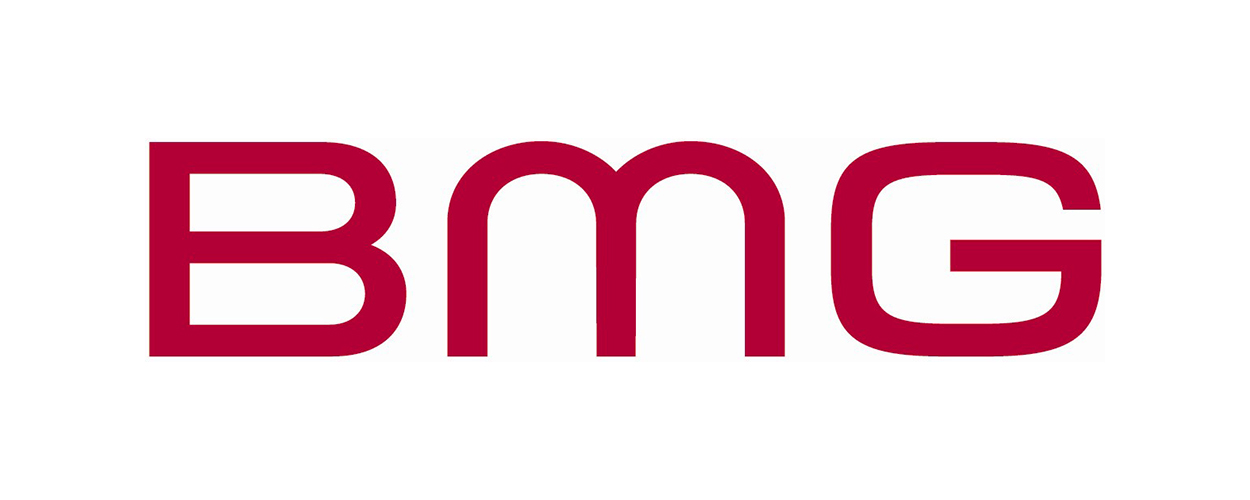
The BMGs yesterday made their royalties portal MyBMG available as an Android and iOS app for the first time, meaning – says the music rights firm – “thousands of BMG songwriters will be able to see up-to-date worldwide information on the value and source of their income from their songs wherever and whenever they want to”.
BMG says it consulted a number of the songwriters it represents when developing the mobile version of its royalty reporting system, including Jenn Decilveo, Dave Stewart and Maury Yeston. So if it’s no good, it’s all their fault.
“It was a very different experience to the usual process of software development”, says Anke Becker, who led the project to develop the app. “We were working hand-in-hand with songwriters trying to tease out exactly the information which is most important to them and then ensuring we present that data in as accessible a way as possible”.
Becker adds that “the result, we believe, is the most user friendly royalties application on the market. We wanted to not only make the product the most transparent, but also make the process of creating and innovating the product transparent and inclusive”.
But what does Dave Stewart think about the final product? That’s what I want to know. In fact, it’s the only reason I showed up to work this morning.
“This is a great tool and a wonderful move forward towards helping songwriters understand where they stand, something that has been badly needed since the dawn of copyright”, says he. “I am proud to be part of the BMG family making steps towards a better future for creatives and leading the way in fair trade for artists”. And hurrah for that!
READ MORE ABOUT: BMG | MyBMG
Thursday 17 August 2017, 11:19 | By Chris Cooke
Electric Jukebox launches new music service for all the family
Business News Digital

The founder of MusicStation, Rara and Electric Jukebox has another new digital music service for you all. Are you excited? Come on, be excited. At least pretend to be excited. There you go, that wasn’t too difficult, was it?
“Unlike the music streaming services offered by the major tech giants, ROXI is not app-based or designed for personal devices”. Oh, I should have said, this new service is called ROXI. “It instead offers a dedicated device and internet connected service that gets friends and family listening, singing and playing together”. These quotes are explaining what the new service is all about. I probably should have said that too. “ROXI powers a shared family experience that works with families’ TV and speakers, making digital entertainment a shared, social, inclusive entertainment experience”.
Want more detail? Well, “ROXI’s unique wireless controller has a built-in microphone, that enables users to voice search the entire music catalogue and singalong, karaoke-style”.
Got that? “The motion sensitive controller encourages interaction between users, allowing you to cooperatively select music entertainment features through families’ TV and best home speakers”. Fun, fun. “Unlike any other personal music streaming device, ROXI enables quality family time through its social music entertainment features, including karaoke-style singalongs and music trivia games”.
Yeah, hmm. Whatever. What do I know? I mean, the laws of probability surely dictate that if you launch enough digital music services eventually one of them will succeed. And maybe ROXI is that service. Let’s have a singalong to celebrate.
And if you’re still sitting there in a sceptical mood, please remember, we are doing this for the kids. Won’t somebody think about the children? Says the founder of Electric Jukebox and its new ROXI product, Rob Lewis: “I spent decades advocating the wider user of the internet, but increasingly, I’ve realised that the overuse of tablets, mobiles and personal tech is damaging children’s development. Children are spending twice as much time on their personal tech as they do talking to their families”.
“We’re sleep walking into a crisis where kids grow up addicted to personal tech”, Lewis goes on, “which damages their ability to communicate in the real world and contributes to a rise in mental health issues. We can’t just take the devices away. We need to recognise these problems and offer radical new alternatives. ROXI is one such alternative approach and one that can get families enjoying digital experiences in a more healthy, sociable framework”.
So there you go. ROXI. The healthy, sociable streaming service. Sign me up!
READ MORE ABOUT: Electric Jukebox | MusicStation | Rara | ROXI
Thursday 17 August 2017, 11:13 | By Chris Cooke
Spotify removes music by “hate bands” from its platform
Business News Digital

Spotify has removed music from a number of acts that were identified as racist “hate bands” by US civil rights advocacy group the Southern Poverty Law Center three years ago.
The streaming firm has acted in response to an article on Digital Music News, which identified the acts criticised by the Southern Poverty Law Center that were available via the digital service. The DMN article, of course, followed the violence that occurred in Charlottesville, Virginia last weekend during a white supremacist rally, which has put overtly racist political groups back into the media spotlight.
Spotify confirmed to Billboard that it had now removed the acts listed in the article, adding that it generally relies on its label and distributor partners to filter out music of this kind, but that “illegal content or material that favours hatred or incites violence against race, religion, sexuality or the like is not tolerated by us”.
The streaming firm’s spokesperson added: “Spotify takes immediate action to remove any such material as soon as it has been brought to our attention. We are glad to have been alerted to this content – and have already removed many of the bands identified today, whilst urgently reviewing the remainder”.
READ MORE ABOUT: Spotify
Thursday 17 August 2017, 11:09 | By Chris Cooke
Juggalos march on Washington to clash with pro-Trump rally
Artist News

When Insane Clown Posse fans march on Washington next month as part of their long running campaign to have themselves removed from the FBI’s list of active gangs, they will be sharing the city’s National Mall with a pro-Donald Trump rally being supported by right wing political groups, which is due to take place the same day.
As previously reported, ICP fans, known as Juggalos, were added to a list of criminal gangs in the FBI’s 2011 National Gang Threat document, and have remained there ever since. To date, attempts to have them removed, including via legal action, have been unsuccessful. To that end, the hip hop duo announced last year the plan to march on Washington on 16 Sep. The protest has its own website at juggalomarch.com.
But MetalSucks noticed earlier this week that, on the same day, another protest is planned, albeit at the other end of the National Mall. Called the Mother Of All Rallies, the other event has been organised by right wing YouTuber Tommy Gunn and declares that protestors at the event will “demand protection for traditional American culture while they express their love for the United States and the America First agenda”.
It’s not clear if the “traditional American culture” that the Mother Of All Rallies seeks to defend includes the Insane Clown Posse. Probably not. Which means protestors on the National Mall that day will have to pick a gang to shout for. Not that ICP fans are a gang of course. We cannot stress that enough.
READ MORE ABOUT: Donald Trump | Insane Clown Posse | Juggalos
Thursday 17 August 2017, 11:07 | By Chris Cooke
Zayn’s second album will be more “organised”
Artist News

Zayn Malik’s second album is going to be more “organised”. As all second albums should be I reckon.
Speaking about his work on the follow up to debut solo album ‘Mind Of Mine’, Malik told VMAN: “I feel like my songwriting definitely developed, just because I’ve been doing it so much. I feel like the songs are a bit more organised, whereas I felt like, before, that ‘Mind Of Mine’ was a brainstorm”.
That, in case you wondered, was where the title of the first record came from. “That’s why I called it ‘Mind Of Mine'”, Malik continued, “because it was ideas that I had, that I put out. This one is more thought out. I had more time to process everything and go through it all. It’s an evolution”.
We don’t know yet when album number two will be unleashed, though the first track from it, ‘Still Got Time’, was posted online back in March.
READ MORE ABOUT: Zayn Malik
Thursday 17 August 2017, 11:04 | By Chris Cooke
New venue, new curator and Spotify sponsorship for Artist & Manager Awards
Awards Business News
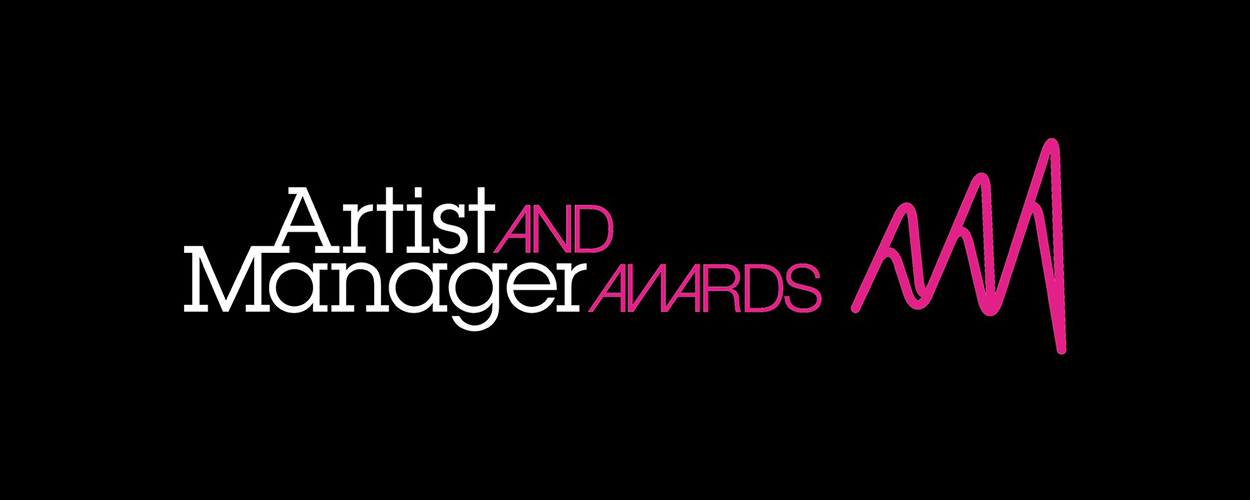
The Music Managers Forum and Featured Artists Coalition have announced that the next edition of their Artist & Manager Awards will take place in a new venue, Printworks London, and that the event has a curator this year, in the form of A&R and music marketing veteran, one time radio DJ and current artist manager Nick Stewart.
Spotify is sponsoring the event, which will take place on 14 Nov, shortly after the MMF celebrates its 25th anniversary.
Commenting on the awards and his involvement in them, Stewart said: “25 years is a proper anniversary for a proper organisation. Driven by young and dynamic talent across the whole musical spectrum, I am fully confident of an awards show which will show off the best of British management and musical talent”.
Meanwhile MMF CEO Annabella Coldrick added: “2017 has already been an incredible year for music, and the Artist & Manager Awards allows us a unique opportunity to celebrate and recognise those individuals who are driving our business forwards. As a long-time Associate Member of the MMF, I am delighted that Spotify have come onboard as headline sponsor and also to be working with such a widely-respected figure as Nick Stewart. Add in a new venue, and the ingredients are there for our most successful awards yet”.
Meanwhile FAC boss Lucie Caswell added: “The AMAs represent a special opportunity to shine a light on some of the best hearts and minds amongst artists and managers. We don’t often get a chance to herald the work of our toughest audience and strongest allies – our peers – so the awards are a fantastic occasion to do so! This year we will be spoilt for choice in all categories, and given the leading role of artists and managers to drive forward innovation in music it feels extremely fitting to have the support of Spotify”.
READ MORE ABOUT: Artist & Manager Awards | Featured Artists Coalition (FAC) | Music Managers Forum (MMF) | Music Managers' Forum
Thursday 17 August 2017, 10:59 | By Chris Cooke
Bonnie Tyler to sing ‘Total Eclipse’ during a total eclipse
And Finally Artist News
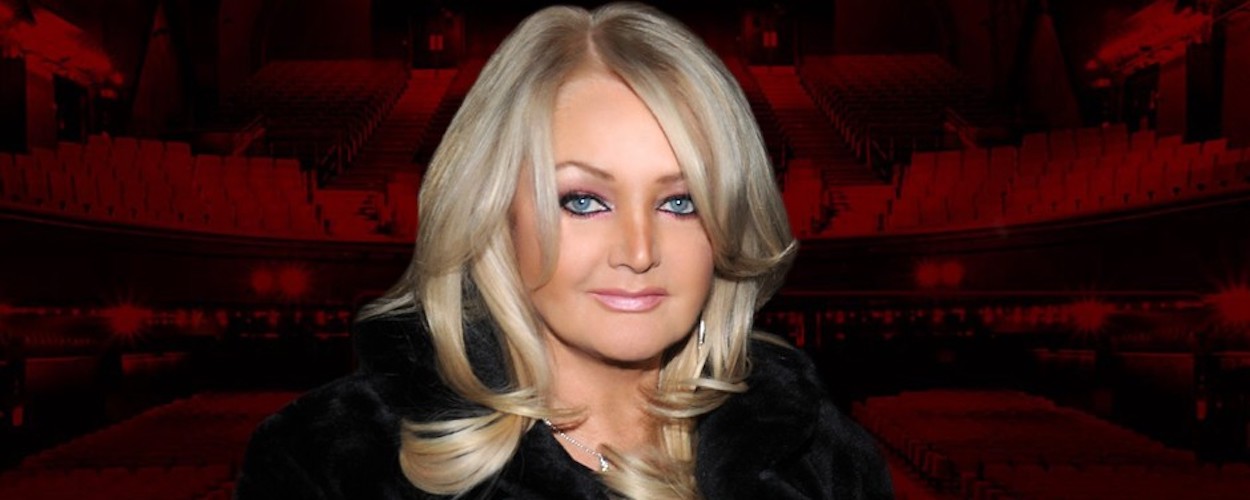
The USA is set to experience a total solar eclipse on Monday, the first time a total eclipse of the sun has occurred in the country since 1979. So that’s exciting. Let’s hope everyone uses the moments of darkness to have a very good think about things. We could do with that.
Though those who witness the event from the ocean on the Oasis Of The Seas cruise as it sales from Orlando to the Caribbean will be in for a special treat during the total darkness moment. Bonnie Tyler singing ‘Total Eclipse Of The Heart’! Brilliant.
“It’s going to be so exciting”, says Tyler to Time of the special eclipse-show booking, “it doesn’t happen very often, does it?” It’s true. Bonnie Tyler singing ‘Total Eclipse Of The Heart’ during a total eclipse of the sun does not happen very often.
Let’s just hope the captain of the ship manages to park his boat in the right spot at the right moment, so that Tyler can perform her pop rock classic in the ‘path of totality’ as planned.
READ MORE ABOUT: Bonnie Tyler
Wednesday 16 August 2017, 10:15 | By Chris Cooke
“No justification” for labels to see Spinrilla source code, says Spinrilla
Business News Legal Top Stories

The dispute between the major record companies and mixtape sharing app Spinrilla continues, with the former’s request for access to the latter’s source code high on the defendant’s current list of specific gripes.
As previously reported, the Recording Industry Association Of America sued Spinrilla over allegations of rampant copyright infringement back in February. The mixtape set-up then quickly hit back the following month arguing that [a] it employed the Audible Magic rights management technology on its platform that the record industry had requested it use; [b] the labels now suing it had in the past lobbied for their music to be promoted on the service; and [c] anyway, it is protected by the often controversial copyright safe harbour.
There has since been a back and forth between lawyers working for both sides in the dispute, and earlier this month they filed a joint document with the court seeking judicial opinion on a few procedural matters, including what documents each side should provide the other. Torrentfreak has now published that court submission.
One thing Spinrilla is really keen not to hand over to the RIAA is its source code which, the labels argue, would provide important evidence for their case in regards to the defendant’s knowledge of infringement on its platform, and its ability to deal with repeat copyright infringers amongst its community of mixtape uploaders.
But, says Spinrilla, it would be mad to hand over something as valuable as its source code to the record industry. It says in the new court papers: “The source code is the crown jewel of any software-based business, including Spinrilla. Even worse, plaintiffs want an ‘executable’ version of Spinrilla’s source code, which would literally enable them to replicate Spinrilla’s entire website. Any plaintiff could, in hours, delete all references to ‘Spinrilla’, add its own brand and launch Spinrilla’s exact website”.
Which, obviously, isn’t a particularly likely outcome, but it’s the principle, see. “If we sued YouTube for hosting 210 infringing videos”, Spinrilla’s submission goes on, “would I be entitled to the source code for YouTube? There is simply no justification for Spinrilla sharing its source code with plaintiffs”.
The defendant also argues that the RIAA’s request for detailed information about its users is too broad, and that it will only share data about those users directly linked to the uploading of the 210 infringing tracks that the record labels specifically name in their lawsuit.
It remains to be seen how the court now rules on these various matters.
READ MORE ABOUT: Recordings Industry Association Of America (RIAA) | Spinrilla
Wednesday 16 August 2017, 10:13 | By Chris Cooke
Sony/ATV renews deal with hit writer Ilsey Juber
Business News Deals Labels & Publishers

Sony/ATV has only gone and extended its worldwide deal with your good mate Ilsey Juber, so to continue repping her songwriting work on tracks released by the likes of Shawn Mendes, Pitbull, Beyonce, Drake and Linkin Park. Oh, and some future compositions as well. It’s all about those future compositions, isn’t it? That’s what I live for.
“Ilsey is an incredible songwriter who has already worked with so many great artists and we are proud to have been part of that success”, exclaimed Rick Krim, Sony/ATV’s Co-President in the US, yesterday. “I am excited that we will continue our relationship with her and to see where her writing takes her next”.
But it’s the music publisher’s VP Creative Tyler Childs who’s is THRILLED about the whole thing. “Ilsey is family to us at Sony/ATV”, says he. “We’ve watched her grow into one of the most sought-after songwriters in the world today” he adds. But isn’t he THRILLED about the new deal? Yep, that’s what I said, didn’t I? “We’re THRILLED to continue our work together”, he concludes.
Meanwhile, Juber herself delivered these fine words: “I’m so happy to be staying at home with my Sony/ATV family. Everyone here has always encouraged my work and I can’t wait to see what else we can accomplish together”.
READ MORE ABOUT: Ilsey Juber | Sony Music Publishing
Wednesday 16 August 2017, 10:08 | By Chris Cooke
Warner/Chappell announces deal with Siobhan Fahey
Business News Deals Labels & Publishers

Warner/Chappell has signed a worldwide publishing deal with the former Sister of Shakespear(e) and one-time – and soon to be again – Bananaramarer. By which I mean the marvellous.
Confirming the new deal to rep Fahey’s songwriting work, the MD of Warner/Chappell UK Mike Smith said earlier this week: “Siobhan is one of the most accomplished female songwriters this country has ever produced. Both Bananarama and Shakespears Sister enjoyed enormous creative and commercial success. We’re delighted to represent Siobhan’s incredible catalogue and also look forward to supporting her on new songwriting projects”.
Fahey herself added: “It’s an exciting time for me right now as I’m heading out on tour as part of Bananarama for the first time in 30 years. I’m also continuing to write solo material and work with a great range of other artists. I’m so pleased to start a relationship with Warner/Chappell at this point, as I open the latest chapter of my career”.
Fahey will be gigging with her former group Bananarama on a UK tour from 9 Nov, kicking off with a show in Belfast.
READ MORE ABOUT: Siobhan Fahey | Warner Chappell
Wednesday 16 August 2017, 10:04 | By Chris Cooke
Administrators seek buyer for distribution firm Cinram
Business News Labels & Publishers

Administrators for distribution firm Cinram have confirmed that they intend for the company to continue servicing its existing clients as normal for now, while they seek to sell the business as a going concern.
Cinram, which provides physical distribution services to the music, film and gaming sectors, went into administration on 10 Aug. It followed a tricky couple of months for the company seemingly caused by major client Universal Pictures taking its business to rival Sony DADC. According to reports, 81 employees have already taken redundancy, while a further 29 have transferred over to the Sony-owned logistics set-up.
A statement on Cinram’s website confirming that the company is in administration states: “CLUK will continue to trade while the joint administrators seek to sell the business as a going concern”. The website then provides information on who is empowered to place orders for the company while it is in administration.
Commenting on the collapse of the distribution business, which works for a number of indie labels and distributors, the boss of the Association Of Independent Music, Paul Pacifico, told Music Week yesterday: “AIM were disappointed to see the announcement that Cinram are in administration. This is another blow to the independent sector meaning that for many, there will be no completely independent supply chain available to them”.
He went on: “AIM understands that currently the administrators are working to ensure continuity of service and looking towards a buyer for the business. AIM members who are affected – either directly or via their distributor – and are concerned, are welcome to discuss the situation with AIM, who will be available to advise them”.
READ MORE ABOUT: Cinram | Universal Pictures




